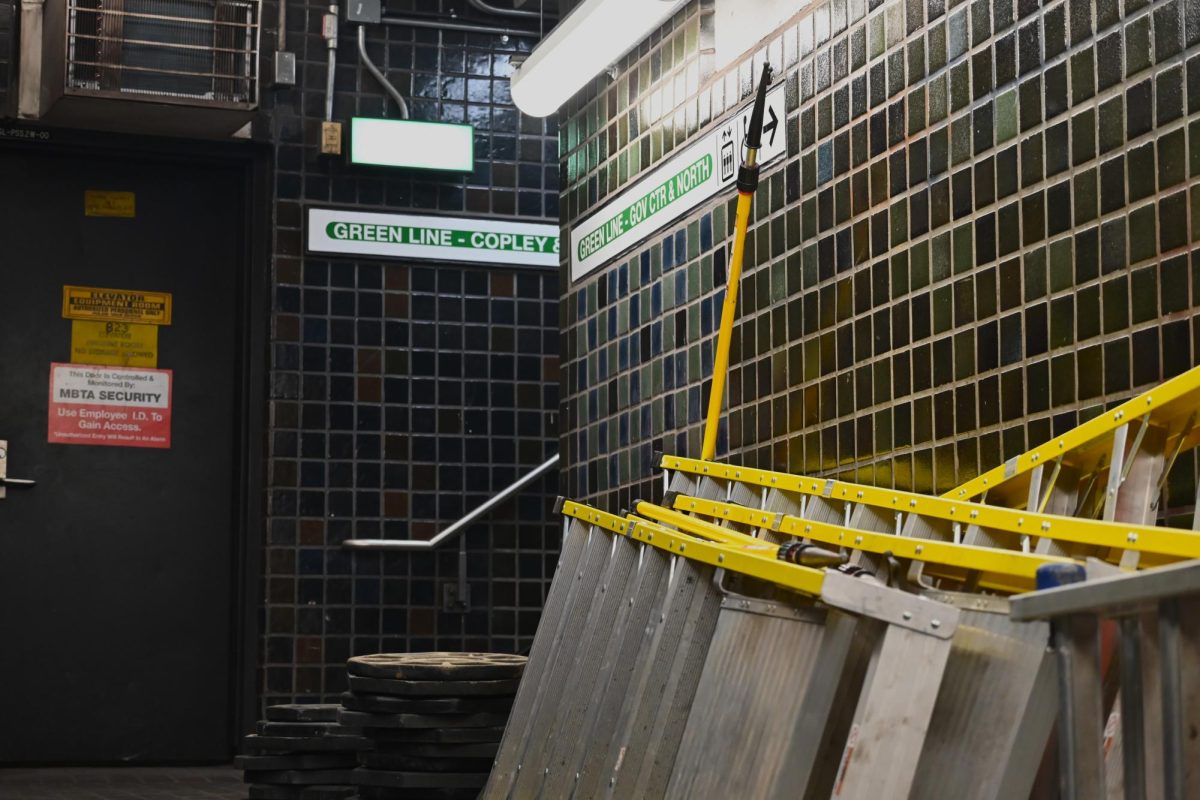Given Boston’s reputation as one of the safest cities in the country and its status as a “college city” with over 150,000 students enrolled in one of its dozens of schools, it seems like the perfect city campus.
However, it’s missing a major element: nightlife for its students. Lacking places for students to mingle like bars and clubs while also having all forms of public transportation shut down early, the Boston nightlife scene leaves much to be desired.
Being one of the city’s smaller colleges, Emerson seems to have everything going for it. Located in the heart of Boston, with the Boylston Green Line stop at the campus’s doorstep and near locations like Boston Common, Downtown Crossing, and Newbury St., it allows students to have a fulfilling college experience.
“There’s always something to do downtown, and I love walking around and finding new places,” said Aparna Prabhakar, a freshman journalism major.
Later in the evening, however, the options for a good time become more scarce.
It seems the city does not want to promote a vibrant nightlife culture either. The MBTA shuts down by 1 a.m. at the latest. Additionally, most concert venues enforce an 11 p.m. curfew due to Boston’s noise regulations, and sit-down bars and restaurants are closed by 11 p.m. Liquor licenses only allow restaurants and clubs in the city to sell alcohol until 12:30 a.m.

The MBTA Green Line Park Street Station is under construction.
On top of things shutting down early, being a college student requires you to be smart with your money. A round trip on the MBTA costs $5, and an inexpensive meal costs $18 minimum, not including drinks, which can range from $8 to $19.
“I think living in Boston is ridiculously expensive, particularly for college students who need to spend money on day-to-day expenses in addition to the cost of having fun,” Prabhakar said. “ [I spend] at least $20 minimum for a very cheap meal.”
If a student chooses to stay close to campus, the options are even more limited. Colleges such as Massachusetts Institute of Technology, Boston University, and Northeastern have Greek life that hosts social gatherings that bring students together after hours. Emerson has nothing of comparison.
Emerson’s Greek life organizations, like Kappa Gamma Chi, a professional sorority, or Sigma Pi Theta, a local social sorority, do not prioritize organizing large social events open to the entire Emerson community. This is largely due to the absence of dedicated housing for these organizations. This contributes to students’ lack of nightlife options.
Even Emerson’s nearest Boston Common neighbor, Suffolk University, lacks a strong presence of Greek life due to many of the same issues, like its small population and condensed location. If Emerson students want to experience large social gatherings hosted by Greek life organizations, they have to travel to schools like BU or Northeastern.
“Going out to Northeastern and MIT might be out of the way, but it’s worth it because their campuses actually have things to do like parties or other events,” said first-year writing, literature, and publishing major Ava Bartels.
The MBTA is most student’s main form of transportation within the city. However, the Green Line is currently closed from the stops at Arlington Station to Haymarket Station, which directly affects Emerson students living on campus and their ability to travel at night or even during the day.
Traveling outbound also allows students to attend “house shows,” basement gatherings that host young upcoming artists and provide an alternative to Greek nightlife. These venues are an opportunity for college students to mingle and enjoy live music for an affordable price of $5 to $10.
“House shows are super cool because you’re not only exposed to new musicians and music itself, but it’s in an intimate space,” Bartels said. “You do have to pay to get in, but it’s reasonably priced and not expensive at all. I’ve met so many cool people at events like these and usually the music is pretty chill.”
However, even this is not a perfect solution. Due to the response to a recent Boston Globe article, a large number of “house show” venues have either shut down or attempted to dial back their advertising due to the increased media exposure according to multiple social media posts by the house show venues.
In response to the challenges Emerson students face regarding nightlife, some have offered solutions for the city to fix the nightlife scene in Boston.
Zyon Lindeblad, a first-year WLP major, believes that the nightlife scene in Boston should be filled with activities other than partying and drinking, which is largely restricted to 21+ venues.
“Boston is a big college city and there should be things that cater more toward that age range,” she said. “I think improving nightlife in Boston first starts with extending the operational hours of [daytime activities] in the city.”
Lindeblad suggested keeping businesses such as bookstores, late-night cafes, karaoke bars, and escape rooms open later into the night.
Many students, including sophomore visual media arts major KJ Halpern, expressed a similar belief that nightlife isn’t all about partying to them. Students simply want a place where they can go to gather after hours.
“There need to be more opportunities to have fun in a controlled environment that isn’t a cramped dorm room,” said Halpern.